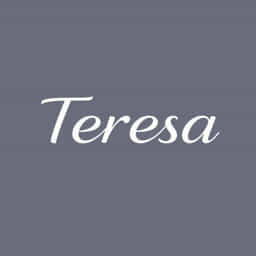Names are often spelled differently depending on cultural, regional, or personal preferences, and one name that often causes confusion is Teresa. When people ask Do you spell Teresa?, they usually want to know the correct spelling, whether there are acceptable variants, and which version is most commonly used. This question might arise in the context of naming a baby, addressing a formal letter, or referring to a historical or religious figure like Mother Teresa. The answer isn’t entirely straightforward, as there are several acceptable spellings, each with its own background and usage context.
Common Variations of the Name Teresa
The name Teresa has several popular spellings in English and other languages. While they all sound very similar when spoken aloud, the way each one is spelled can reflect cultural origin, family preference, or even religious background. Here are some of the most recognized variants:
- Teresa– This is the standard and most commonly used English spelling. It is simple and elegant, and often associated with Mother Teresa, the Catholic nun known for her charitable work in India.
- Theresa– This is another common English variant, more traditional and sometimes perceived as more formal. It was the name of British Prime Minister Theresa May.
- Therese– A French version, often pronounced differently, such as Teh-rez. This spelling is associated with Saint Thérèse of Lisieux, another well-known Catholic saint.
- Terese– A Scandinavian-influenced spelling, also seen in English-speaking countries. It’s a shorter and slightly more modern variation.
Which Spelling Is Correct?
Technically, there is no single correct way to spell the name Teresa. The proper spelling often depends on:
- Family tradition or personal preference
- Cultural or linguistic background
- Legal documentation such as birth certificates or identification
For example, someone from Spain or Latin America may prefer the spelling Teresa, while someone from the UK might be more accustomed to Theresa. In many cases, people choose the spelling they find most appealing or meaningful.
The Importance of Consistency
If your name is Teresa (or you are naming someone), the key point is to be consistent with the spelling. On legal documents, identification, or school records, it’s important to stick to the chosen version to avoid confusion. Misspellings or switching between Teresa and Theresa can cause issues when filling out official forms or applying for jobs and school admissions.
Common Questions About Spelling Teresa
1. Is Teresa the same as Theresa?
Both Teresa and Theresa are considered variants of the same name. They share the same meaning and origin but differ in spelling. Some people might pronounce Theresa with a softer th sound, but in many English accents, both names are pronounced the same.
2. What does the name Teresa mean?
The name Teresa is believed to be of Greek origin and means to harvest or harvester. It became popular in Christian contexts, especially because of saints like Teresa of Ãvila and Mother Teresa. The meaning remains the same regardless of the spelling variant.
3. Can I choose how to spell Teresa when naming a child?
Yes, you can choose any spelling variant you like, whether it’s Teresa, Theresa, Therese, or Terese. The decision usually depends on how it looks, how it sounds, and what cultural or religious connotations it might carry.
Spelling Teresa in Different Languages
While Teresa and Theresa are popular in English, the name also appears in other languages with slight differences:
- Spanish: Teresa
- French: Thérèse
- German: Theresa or Therese
- Italian: Teresa
- Portuguese: Teresa
The way the name is spelled can change depending on the country, but it remains recognizable in most European languages.
Historical and Cultural Influence
Some spellings gained popularity due to historical figures or celebrities. For example:
- Mother Teresahelped popularize the Teresa spelling across the globe.
- Theresa Maybrought attention to the Theresa variant during her term as UK Prime Minister.
- St. Thérèse of Lisieuxinspired many French-speaking Catholics to use the Thérèse version.
People often choose the spelling that matches a figure they admire or relate to culturally.
Tips for Spelling Teresa Correctly
When you are writing the name Teresa, consider the following tips:
- Double-check how the person spells it if you’re unsure. Many people are sensitive about their name being spelled incorrectly.
- Look at formal documents or ask directly for clarification when addressing someone in writing.
- If you are using the name in fiction or creative writing, choose the spelling that fits your character’s background or personality.
What About Middle Names and Nicknames?
The name Teresa often comes with a variety of middle names or nicknames that may reflect the chosen spelling. Common nicknames include:
- Tess
- Tessa
- Terri
- Reese
Sometimes, the nickname can offer a hint about the spelling. For instance, someone who goes by Tessa might be more likely to spell their full name as Teresa.
Choosing the Right Spelling for Yourself
If you’re in a position where you can choose the spelling of your name, such as adopting a new name for professional reasons, creative work, or even a legal name change, think about how it will appear in writing. Some versions may look more classic or formal (like Theresa), while others may seem simpler and more modern (like Teresa or Terese).
So, do you spell Teresa with an h or without? The answer depends on your preference, background, and the context in which the name is used. Whether you go with Teresa, Theresa, Therese, or Terese, all versions are acceptable and recognized. What matters most is consistency, clarity, and personal meaning. The name Teresa however it is spelled has a rich history and timeless appeal, making it a beautiful choice across cultures and languages.
